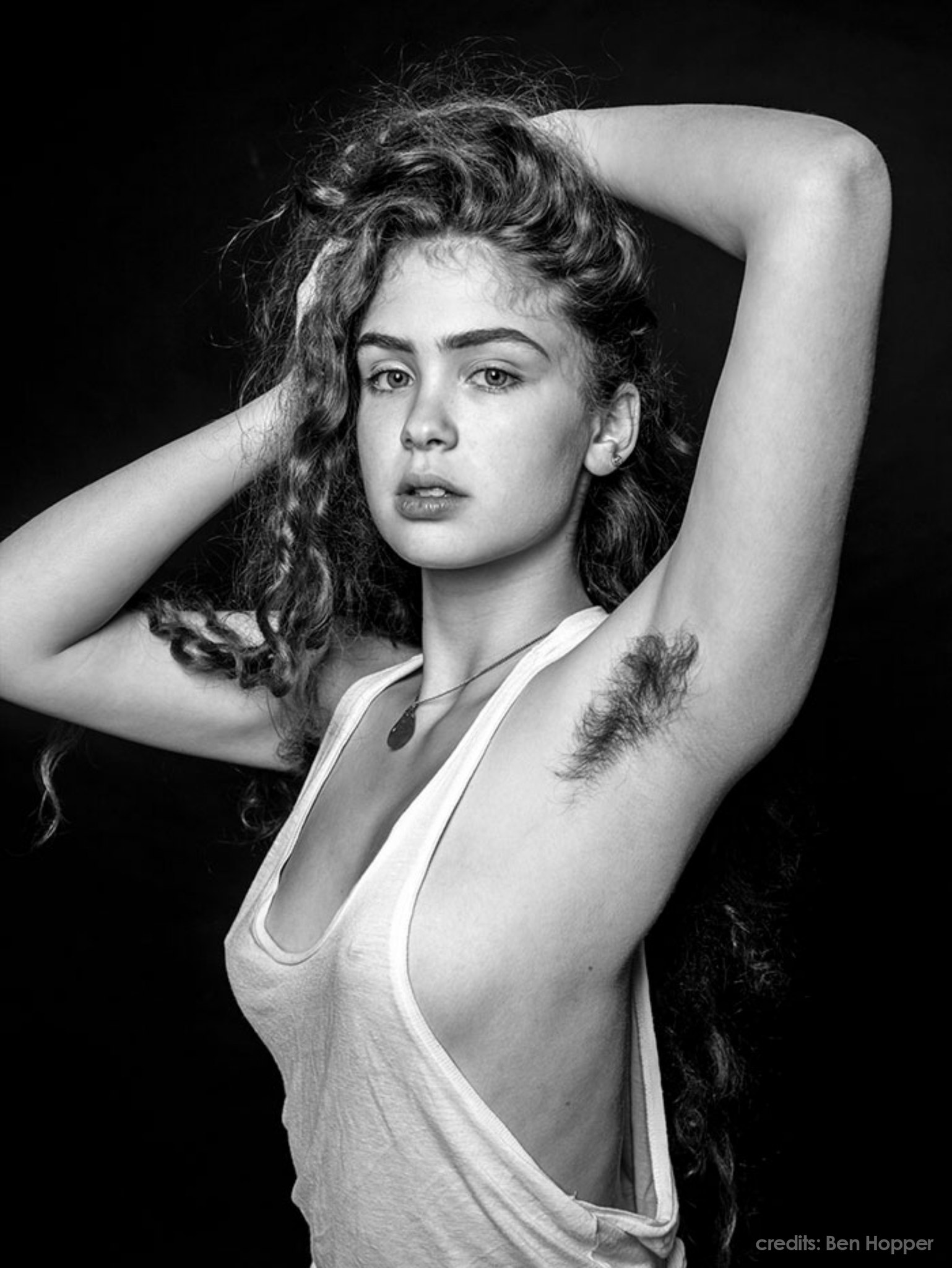A striking and unapologetic photo series is shaking up traditional beauty norms by urging women to embrace what society has long deemed unacceptable: natural armpit hair. In a world where hair removal is practically expected of women, photographer Ben Hopper’s project “Natural Beauty” dares to challenge deeply ingrained beauty standards and invites women to rethink their grooming choices.

Long before modern razors, waxing strips, and laser hair removal became common in beauty routines, body hair removal was already a widespread practice. In fact, the ritual dates back to the Stone Age when men and women used sharpened stones or seashells to scrape hair from their bodies. Later, Charles Darwin’s theory of natural selection added a pseudo-scientific spin to the issue, suggesting that people with less body hair were more “evolved.” This idea reinforced the association between hairlessness and attractiveness, and by the 20th century, society firmly planted the belief that hairlessness was not only preferable but a duty—particularly for women. Body hair became viewed as unclean, unfeminine, and undesirable, leading many women to feel pressured into daily grooming routines out of a sense of shame rather than choice.
Author Heather Widdows, in her book Perfect Me: Beauty as an Ethical Ideal, emphasized how deeply internalized these expectations have become. “Most women feel like they have to shave. Like they have no other option,” she said in an interview with CNN, highlighting how the idea of female body hair has long been tied to notions of morality and identity. Now, a cultural shift is emerging, with women rejecting these outdated beauty standards.
London-based photographer Ben Hopper, speaking to Bored Panda, explained his motivation behind the photo series. He wanted to explore why female armpit hair remains such a taboo and challenge the narrow definition of feminine beauty portrayed in mainstream media. “The armpit hair is considered disgusting, non-hygienic, grotesque, very masculine,” Hopper said, adding that fashion and film industries continue to push an extremely specific and polished standard for women.
With his “Natural Beauty” project, which he began in 2007, Hopper presents a raw, black-and-white contrast between conventional femininity and what society calls “unconventional” by showcasing women proudly baring their armpit hair. “The whole point is to contrast the expected, glamorous female beauty with the reality of natural body hair,” Hopper told the Huffington Post. He admitted that he hopes the series will surprise people and provoke conversations that question long-held ideals. The women who participated in the series shared intimate reflections on their experiences with body hair and self-acceptance. One model, known as Kyotocat, said she felt liberated when she stopped shaving. “It felt like being able to breathe. I felt a confidence and boldness returning, like I was replenishing some kind of primal power,” she said. Sophie Rose described the choice as “empowering,” sharing that she even found humor in people’s shocked reactions. “You feel stronger for not giving in to the way you’ve been told to be,” she added. Another model, Gabriela Eva, said she grew her armpit hair specifically for the shoot and found herself feeling vulnerable at first, then empowered. “I’ve grown accustomed to my armpit hair, and it makes me feel beautiful. If I removed it now, I’d feel a little bare,” she explained. Not all participants framed their choice as a form of protest. Sienna noted that while body hair can be interpreted as a political statement, for her, it was simply about comfort. “I don’t think refusing to shave should necessarily be considered a radical act. I just don’t want my body to always be viewed as a political space,” she said. Similarly, Swedish actor Emilie Bostdt questioned why something as natural as armpit hair should be controversial at all. “The fact that it’s seen as a statement is weird—and that’s exactly why I choose to grow it,” she said. Although Hopper doesn’t aim to convince women to grow body hair, his intention is to offer an alternative and start a dialogue. “I just think it’s a possibility and people shouldn’t dismiss it,” he explained. “I want people to question the standards themselves.” As more individuals join this growing conversation and support inclusive projects like “Natural Beauty,” the definition of what is beautiful continues to evolve. Whether society is fully ready to accept this broader perspective remains to be seen—but the conversation is certainly underway.





